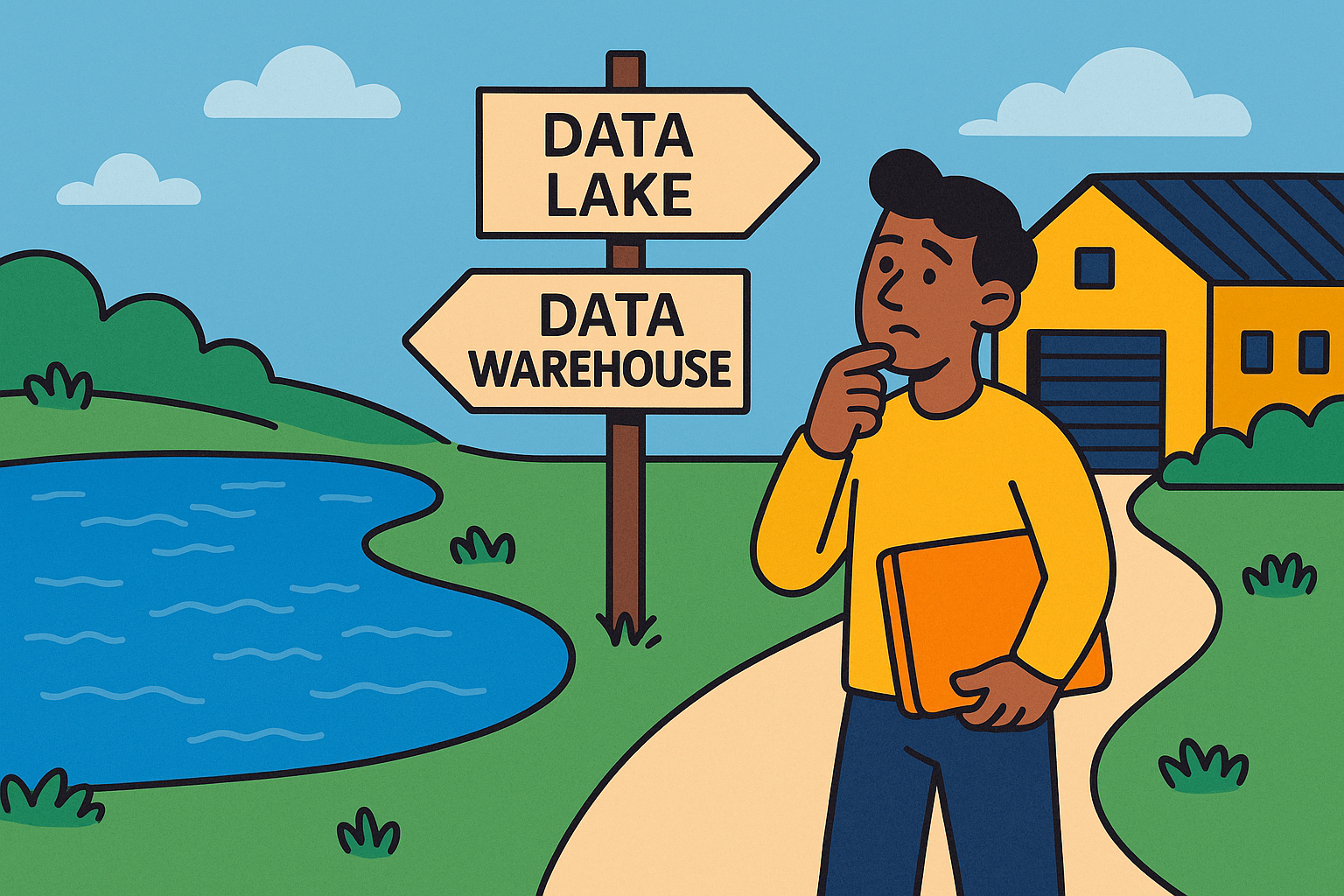In the current era where customer experience reigns supreme, Customer Relationship Management (CRM) systems have become the linchpin of successful businesses. These systems not only help in sales automation but also offer a 360-degree view of customer interactions, hence affecting an organization's bottom line directly. However, the capabilities of a CRM system are largely governed by the quality and integrity of the data it contains. Effective data management strategies are indispensable for leveraging the full potential of CRM systems. This post will delve deep into the intricate world of data management within CRM, spotlighting strategies that can transform how your business interacts with its customer base.
The Confluence of CRM and Data Management
CRM and data management are two disciplines often studied in isolation, but when they converge, the result is a dynamic ecosystem that amplifies the capabilities of each. Data management enables a CRM system to evolve from a static data repository to a vibrant, intelligent entity that not only stores but also interprets and utilizes data for actionable insights.
Think of CRM systems as the eyes and ears of a business organization, capturing myriad forms of customer interactions across multiple channels—be it sales, marketing, or customer service. Data management is the brain that processes this sensory information, transforming raw data into coherent insights that can be acted upon. Properly managed data within CRM systems can facilitate a range of activities from targeted marketing and personalized service delivery to more efficient use of resources.
Moreover, with the influx of Big Data technologies, the volume of data that CRM systems must manage has skyrocketed. "Big data is at the foundation of all the megatrends that are happening today," says Chris Lynch, a recognized thought leader in Big Data. If CRM is the vehicle driving these trends, then robust data management is the engine under the hood. From data collection and storage to quality control, integration, and analytics—the role of data management in maximizing the effectiveness of CRM systems is comprehensive and indispensable.
The Complexity of CRM Data
Handling CRM data is akin to navigating a labyrinth. It's a complex landscape of different types of information that range from basic customer demographics to intricate behavioral patterns. Doug Laney, an authority in the field, puts it succinctly when he says, “CRM data is not just quantitative but also qualitative, and managing this complexity is no small feat.”
Let's break down this complexity. On one end of the spectrum, we have structured data like names, addresses, and transaction histories. These are relatively easy to manage and categorize. However, on the other end, we find unstructured data—email correspondences, social media interactions, audio and video recordings, etc. This type of data requires sophisticated data management techniques, such as natural language processing (NLP) for text-based data and advanced algorithms for sentiment analysis.
Adding another layer of complexity is the real-time nature of CRM data. Unlike traditional databases that could afford to be updated in batches, CRM systems often require real-time data to function effectively. This could range from the latest interaction a sales rep had with a client to real-time inventory levels that could influence upselling opportunities during customer service interactions.
Lastly, CRM data is often interconnected with other data ecosystems within an organization. For instance, CRM data can feed into an Enterprise Resource Planning (ERP) system, which, in turn, could influence Supply Chain Management (SCM) decisions. The interdependency of these databases makes the task of managing CRM data even more complex and critical.
The complexity of CRM data, therefore, necessitates specialized data management strategies. It requires an understanding that goes beyond traditional data handling methods and embraces the diversity and dynamism that CRM data brings to the table.
Data Quality in CRM
Data quality is the unsung hero in the quest for CRM optimization. High-quality data ensures that you are not just scratching the surface but actually delving into customer behavior, preferences, and trends. Hence, data quality management is not optional but mandatory. The first step in this direction is data validation. Ensuring that the email addresses, phone numbers, and other primary fields are correct goes a long way in reducing bounce rates and improving engagement.
Equally critical is the process of deduplication. Duplicate records don't just occupy extra storage space; they also confuse users and dilute analytics. The deduplication process removes redundant entries to streamline data and enhance CRM performance. Another underappreciated strategy is data standardization, where the format of data entries is standardized to maintain consistency. The term 'Data Hygiene' embodies all these processes, advocating for a clean, reliable, and well-structured database.
Data Integration Approaches
Data integration is often viewed as a monolithic task, but it's far from that. Multiple approaches can be utilized based on the specific requirements of a CRM system. Two of the most commonly used methods are ETL (Extract, Transform, Load) and ELT (Extract, Load, Transform), each with its set of advantages and limitations.
ETL is a sequential process where data is first extracted from various sources, transformed to meet the desired format and structure, and then loaded into the CRM system. This approach is particularly effective when dealing with large, complex data sets that require considerable transformation. ETL offers the advantage of pre-processing, which ensures that only quality, standardized data enters the CRM system.
On the other hand, ELT reverses the last two steps. Data is extracted and loaded directly into the CRM system, and transformations are performed afterward. This is usually faster and more suitable for systems where real-time data availability is a priority. ELT processes often leverage the computational power of modern CRM systems to perform transformations, making it more scalable and adaptable to changing business needs.
Beyond ETL and ELT, the choice between real-time and batch data integration further complicates the landscape. Real-time integration ensures that the CRM system is always updated, offering a real-time snapshot of customer interactions. This is crucial for businesses where real-time decision-making is vital, such as in finance or healthcare. Batch integration, although less current, offers the advantage of lower computational costs and is often sufficient for less time-sensitive applications like periodic customer engagement analyses.
Data Security and Compliance
Data security is more than a technological measure; it's a business imperative, especially when handling sensitive customer data within CRM systems. One breach can not only result in substantial financial loss but can also irreparably damage a company's reputation. This is amplified when dealing with regulated sectors like healthcare or finance, where data protection laws like HIPAA and GDPR respectively come into play.
As cybersecurity expert Bruce Schneier observes, “Data is the pollution problem of the information age, and protecting privacy is the environmental challenge.” CRM systems, being vast repositories of customer data, must be designed with stringent security measures in place. These measures include encryption, multi-factor authentication, and regular security audits to prevent unauthorized access and data leaks.
However, securing the data is just one part of the equation; compliance with regulatory frameworks is another critical aspect. The landscape of data protection laws is not static. It's a rapidly evolving field, shaped by changes in technology and public sentiment about privacy. Therefore, compliance is not a one-time activity but an ongoing process.
Take GDPR, for instance. It not only mandates stringent data protection measures but also places the responsibility of data stewardship on organizations. That means, under GDPR, businesses are not just required to secure customer data but also to ensure its quality and accuracy. If CRM data is being used to make business decisions, then GDPR implicitly demands that this data be well-managed, accurate, and up-to-date.
Another intriguing angle to data security and compliance in CRM systems is the rise of decentralized data management paradigms like Data Mesh. Such architectures present both opportunities and challenges. On the positive side, they can potentially reduce single points of failure, distributing the risk. On the flip side, they introduce complexities in ensuring that each node in this mesh complies with data protection laws, which can vary greatly from one jurisdiction to another.
In the context of CRM data management, this means building not just strong technological barriers against potential breaches but also instilling a culture of data stewardship across the organization. It involves training and educating staff, regular audits of data processes, and constant monitoring of the evolving compliance landscape.
Remember, data security and compliance are not just checkboxes to tick off but are continuous endeavors. As new types of customer data get collected and as regulations grow increasingly stringent, the imperative to focus on security and compliance only intensifies. Therefore, effective data security and compliance measures are not just about avoiding penalties or preventing data breaches; they're about earning and maintaining customer trust, which is arguably the most valuable asset in today's hyper-competitive business environment.
Real-world Applications and Case Studies
To understand the impact of effective data management in CRM, consider the example of a retail company that struggled with low customer retention rates. A comprehensive audit revealed that the problem wasn't the CRM software but the quality of the data it contained. After implementing rigorous data validation, deduplication, and standardization strategies, the company saw a drastic improvement in customer retention and engagement. This real-world example is a testament to how efficient data management can revolutionize CRM outcomes.
Role of Advanced Technologies
Advanced technologies such as Artificial Intelligence (AI) and Machine Learning (ML) are swiftly making their mark in various sectors, and CRM data management is no exception. These technologies have shifted the paradigm from mere data storage and retrieval to predictive analytics and automated decision-making.
For instance, AI algorithms can take over mundane tasks like data validation and cleansing, thus ensuring higher levels of data quality without human intervention. They can also help in sentiment analysis by parsing through customer interactions, such as emails or chat conversations, and generating insights into customer satisfaction and potential churn risks. With machine learning models, the system can learn from every interaction, refining its analytical capabilities over time.
But the most revolutionary application might be in the realm of predictive analytics. As Gartner’s lead analyst Michael Maoz aptly puts it, "AI will be the cornerstone for CRM success in the coming years." AI can predict customer behaviors and preferences based on historical data, enabling businesses to tailor their marketing strategies for individual customers. Furthermore, machine learning models can flag potential data security risks by identifying unusual patterns or anomalies, thus serving as an additional layer of security.
The Indispensable Role of Rigorous Data Management
As we move towards increasingly data-driven landscapes, the role of effective data management in optimizing CRM systems cannot be overstated. From maintaining high-quality data to ensuring security and compliance, a robust data management strategy can significantly impact how a business understands, interacts with, and retains its customers. As you navigate the labyrinthine realms of data management and CRM, remember that your CRM system is only as good as the data it holds. The onus is on businesses to regularly audit their data management practices and strategies, ensuring they remain not just compliant but also effective.
 is now
is now


